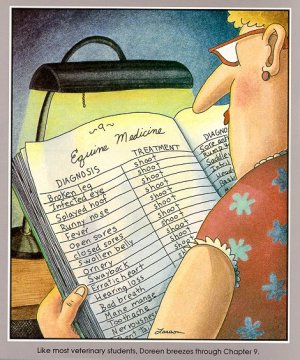Not sure if Alabama has any laws like you mentioned.
Below is from the Alabama veterinary practice act. Practice of veterinary medicine is limited to licensed vets. Here is the definition of "practice of veterinary medicine". Vague enough to include anything. That "other physical or mental condition" could certainly include calf pulling and a host of other conditions. Pretty much says only vets can preg check or pull blood or transfer embryo. Could be interpreted to include AI work or even heat checking or clipping. Typical of lots of states.
(15) Practice of veterinary medicine:
a. To diagnose, treat, correct, change, relieve, or prevent animal disease, deformity, defect, injury, or
other physical or mental condition; including the prescription or administration of any drug, medicine, biologic, apparatus, application, anesthesia, or other therapeutic or diagnostic substance or technique on any animal including but not limited to acupuncture, dentistry, animal psychology, animal chiropractic, theriogenology, surgery, including cosmetic surgery, any manual, mechanical, biological, or chemical procedure for
testing for pregnancy or for correcting sterility or infertility, or to render service or recommendations with regard to any of the above.
b. To represent directly or indirectly, publicly or privately, an ability and willingness to do any act described in paragraph a.
c. To use any title, words, abbreviations, or letters in a manner or under circumstances which induce the belief that the person using them is qualified to do any act described in paragraph a. Such use shall be prima facie evidence of the intention to represent oneself as engaged in the practice of veterinary medicine.
d. Collects blood or other samples for the purpose of diagnosing disease or other conditions. This paragraph shall not apply to unlicensed personnel employed by the United States Department of Agriculture or the Alabama Department of Agriculture who are engaged in the Brucellosis eradication program or external parasite control program pursuant to Section 2-15-192.
e. To remove any embryo from a food animal or companion animal for the purpose of transplanting the embryo into another female animal or for the purpose of cryopreserving the embryo, or to implant the embryo into a food or companion animal. It shall not be considered the practice of veterinary medicine for a person or his or her full-time employees to remove an embryo from the food or companion animal of the person for the purpose of transplanting or cryopreserving the embryo, or to implant an embryo into the food or companion animal of the person, provided ownership of the food or companion animal shall not be transferred or employment of the person shall not be changed for the purpose of circumventing this article.
f. To provide veterinary medical services to a client or patient in this state, through telephonic, electronic, or other means, regardless of the location of the veterinarian, shall constitute the practice of veterinary medicine in this state and shall require licensure within this state and a veterinarian-client-patient relationship must be established.

